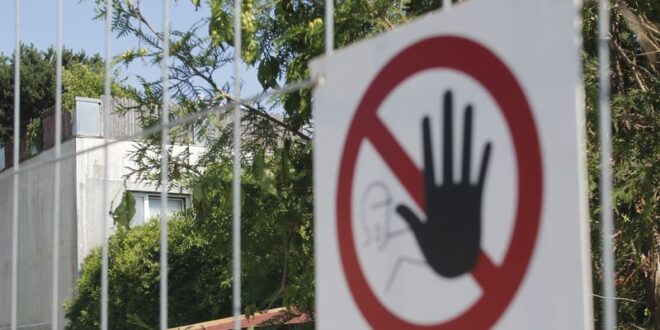KREMS AN DER DONAU, Austria (Reuters) – An Austrian court on Tuesday deferred a ruling on whether the country’s most infamous living criminal, 89-year-old incestuous rapist Josef Fritzl, could be transferred to regular prison from a prison psychiatric unit, his lawyer said.
A transfer could eventually pave the way for his conditional release from prison altogether, and his lawyer Astrid Wagner has said she would apply for such a release soon afterwards.
Fritzl, who has now changed his name, raped his daughter as he held her captive for 24 years, fathering her seven children.
“The panel of judges decided to issue a written ruling,” Wagner told reporters on leaving a hearing in the prison where Fritzl is being held. Further evidence was presented on his mental and physical condition and his suitability for transfer.
She said the evidence made it likely the court would rule in favour of a transfer but that the ruling would only be issued in the coming days.
The case attracted worldwide attention when it came to light in 2008.
He has been in a prison for “mentally abnormal” inmates since his conviction in 2009 for incest, rape, enslavement, coercion and the murder, by neglect, of his newborn son in a dungeon he secretly built under his home.
At a hearing in a courthouse in the same town of Krems an der Donau near Vienna in January, the court allowed Fritzl’s transfer, only for a higher court to overturn that decision in March, ruling that “the facts necessary for such a conditional release had not yet fully been established”.
It sent the case back to the first court, ordering it to gain a fuller picture of Fritzl’s suitability for a transfer. That evidence was presented on Tuesday.
Fritzl was sentenced to life in a prison psychiatric unit 15 years ago, in March 2009, with a reassessment of his condition due 15 years later.
Fritzl’s lawyer Wagner has said that given his frailty and the onset of dementia he no longer poses a threat of re-offending. He also expressed deep regret for what he had done, she said.
(Reporting by Francois Murphy; Editing by Angus MacSwan)
 BeritaKini.biz Berita Viral Terkini di Malaysia
BeritaKini.biz Berita Viral Terkini di Malaysia





